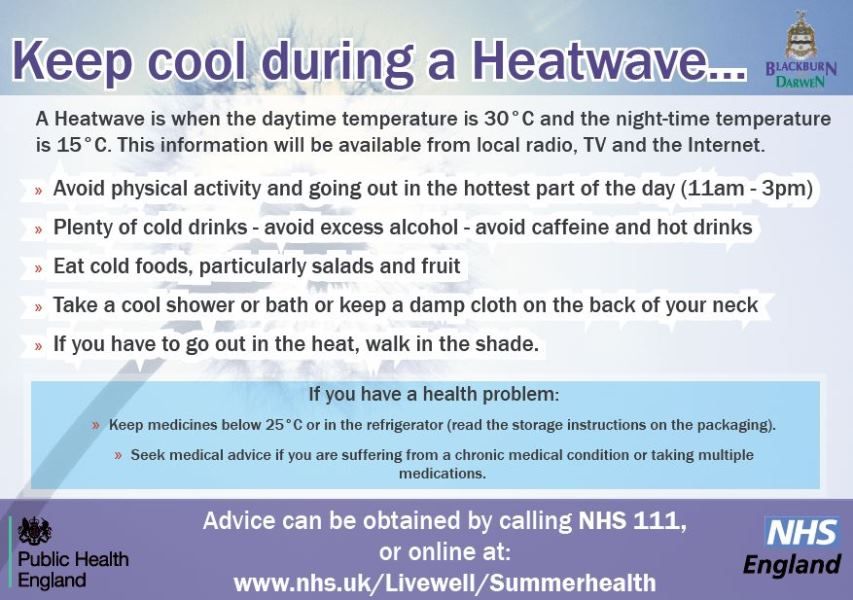
Stay safe in a heatwave and follow this advice
Published Monday 25 July 2016 at 14:56
With temperatures heating up recently and August now just round the corner, Public Health England has published some information on how to stay safe in hot weather.
The ‘Beat the Heat’ factsheet and poster explains how hot weather can be especially problematic for older people – especially those over 75 and/or living on their own or in a care home – people suffering from mental ill health, those with dementia and those people who rely on carers.
Other at-risk groups of people include those taking certain types of medication and babies and young children – especially those under four years old.
Blackburn with Drawen Council always works with its partners to make sure the most vulnerable residents in the borough are kept safe. You too can play your part by minimising the risks, following the guidance and taking a few sensible precautions:
Keep out of the heat; take cool showers or baths and splash yourself several times a day with cold water – particularly your face and the back of your neck – drink plenty of water; eat as you normally would but try more cold food, salads and fruit which contain water.
View the factsheet and poster here
Councillor Mustafa Desai, Executive Member for Health and Adult Social Care, said:
Everyone can enjoy the sun safely by keeping out of the heat at the hottest time of the day, avoiding sunburn and staying hydrated with plenty of cool drinks. The elderly and those with long-term illnesses are particularly vulnerable to the effects of very hot weather, so it’s important to look out for them and keep indoor areas as cool as possible. Even if temperatures do not hit ‘extreme’ levels, follow the Public Health England advice and be aware of the health risks of hot weather.
Dr Chris Clayton, Clinical Chief Officer, Blackburn and Darwen CCG said:
Heatwaves can be very dangerous, especially for the very young or very old or those with health problems. Follow these tips on keeping safe and you can also contact NHS111 or your local pharmacy for further help and advice.
